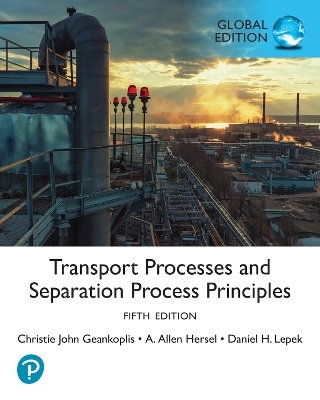
Energy Efficiency in Value Engineering
Barriers and Pathways
Seiten
2010
IWA Publishing (Verlag)
978-1-84339-391-7 (ISBN)
IWA Publishing (Verlag)
978-1-84339-391-7 (ISBN)
- Titel ist leider vergriffen;
keine Neuauflage - Artikel merken
Available as an eBook only.
Value engineering is a technique that wastewater treatment facilities (WWTFs) currently use, when required, to analyze cost reduction and performance optimization opportunities. The research explores the potential to address energy efficiency during value engineering analyses of WWTFs. The research identifies the Society of American Value Engineers (SAVE) International as the primary value engineering standards and certification organization and shows the six-step SAVE process for conducting value engineering analyses. A survey of WWTFs identifies four WWTFs that conduct value engineering analyses using the SAVE process. Then, the research reviews the analyses to determine their effectiveness in addressing process energy efficiency opportunities. While the SAVE value engineering process does not require identification of energy efficiency opportunities, the analyses conducted by the WWTFs do identify such opportunities.
Based on survey results, WWTFs only conduct value engineering analyses when required, primarily because of the cost and time commitment. The research presents barriers to conducting value engineering analyses and discusses possible mitigation pathways. Pathways include (1) steps the State Revolving Fund can take, (2) development of a national value engineering standard that regulatory agencies can incorporate into wastewater system design requirements, and (3) development of WWTF-oriented energy efficiency training materials to add to SAVE’s value engineer certification training.
Value engineering is a technique that wastewater treatment facilities (WWTFs) currently use, when required, to analyze cost reduction and performance optimization opportunities. The research explores the potential to address energy efficiency during value engineering analyses of WWTFs. The research identifies the Society of American Value Engineers (SAVE) International as the primary value engineering standards and certification organization and shows the six-step SAVE process for conducting value engineering analyses. A survey of WWTFs identifies four WWTFs that conduct value engineering analyses using the SAVE process. Then, the research reviews the analyses to determine their effectiveness in addressing process energy efficiency opportunities. While the SAVE value engineering process does not require identification of energy efficiency opportunities, the analyses conducted by the WWTFs do identify such opportunities.
Based on survey results, WWTFs only conduct value engineering analyses when required, primarily because of the cost and time commitment. The research presents barriers to conducting value engineering analyses and discusses possible mitigation pathways. Pathways include (1) steps the State Revolving Fund can take, (2) development of a national value engineering standard that regulatory agencies can incorporate into wastewater system design requirements, and (3) development of WWTF-oriented energy efficiency training materials to add to SAVE’s value engineer certification training.
| Erscheint lt. Verlag | 13.5.2010 |
|---|---|
| Reihe/Serie | WERF Research Report Series |
| Verlagsort | London |
| Sprache | englisch |
| Maße | 156 x 234 mm |
| Themenwelt | Technik ► Umwelttechnik / Biotechnologie |
| ISBN-10 | 1-84339-391-3 / 1843393913 |
| ISBN-13 | 978-1-84339-391-7 / 9781843393917 |
| Zustand | Neuware |
| Haben Sie eine Frage zum Produkt? |
Mehr entdecken
aus dem Bereich
aus dem Bereich
Kommentar der DIN 15905-5, LärmVibrationsArbSchV und …
Buch | Softcover (2023)
DIN Media (Verlag)
CHF 79,95
Buch | Softcover (2023)
DIN Media (Verlag)
CHF 105,55
Buch | Softcover (2024)
Pearson Education Limited (Verlag)
CHF 106,45


